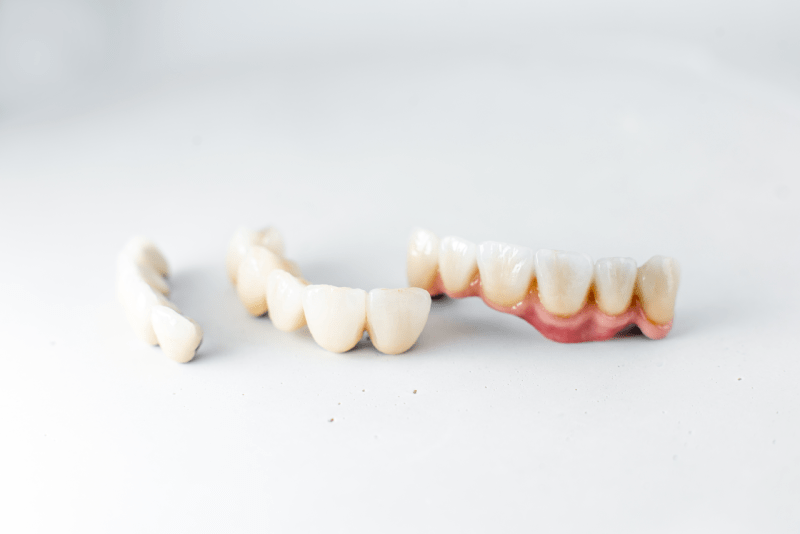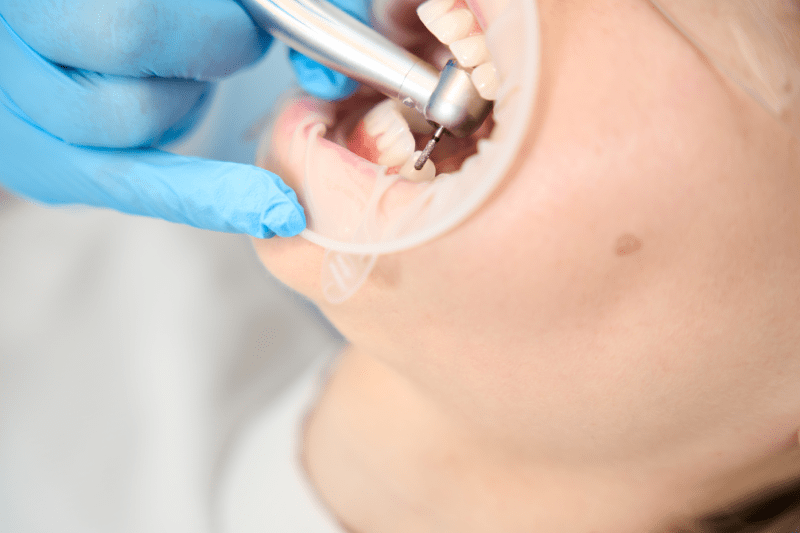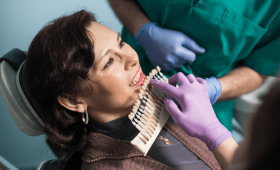What Is the Average Cost of Dental Veneers in Turkey?
The cost of dental veneers in Turkey varies greatly depending on the type of material used (porcelain, zirconium, laminate) and the dentist’s experience. Generally, prices for a single tooth range between $150 and $500. These prices are quite economical compared to European countries like Sweden. Low operating costs and government incentives for health tourism enable Turkey to offer competitive prices in this field.
What Is the Average Cost of Dental Veneers in Sweden?
The cost of dental veneers in Sweden is significantly higher compared to Turkey. The cost per porcelain veneer can range from 800 to 2,000 Euros. These prices generally only include the veneer procedure, and you may have to pay extra for additional services. High living standards, high labor costs, and high taxes in the healthcare sector are the main reasons for these high prices in Sweden.
Why Are Prices in Turkey More Affordable?
The primary reasons for the more affordable dental veneer prices in Turkey are low operating and labor costs. Clinic rents, staff salaries, and general overheads are much lower compared to Sweden. Furthermore, the value of the Turkish Lira against foreign currencies like the Euro and Swedish Krona creates an attractive cost advantage for foreign patients. These factors make it possible to offer economical prices without compromising on quality.
Does the Price Difference Affect the Quality of Service?
The difference in dental veneer prices does not directly reflect the quality of service. Many clinics in Turkey use state-of-the-art equipment and materials that are recognized at international standards. Dentists have extensive experience in this field and participate in international training. However, since low-quality services can exist in both countries, it is extremely important to do detailed research and work with reliable, accredited clinics.
What Services Are Included in Packages in Turkey?
Dental veneer packages in Turkey are generally comprehensive and aim to meet all the patients’ needs. A package may include the veneer procedure, pre-operative diagnostics, X-rays, local anesthesia, medications, airport transfers, and even a few nights of hotel accommodation. These packages aim to prevent patients from facing additional costs or logistical difficulties and make the treatment process more comfortable.
What Services Do Prices in Sweden Cover?
The prices for dental veneers in Sweden generally only cover the veneer procedure and the dentist’s fee. Patients may have to pay extra fees for X-rays, medications, and additional services. Clinics usually provide a detailed breakdown to make treatment costs more transparent. However, comprehensive and all-inclusive packages like in Turkey are not common.
What Veneer Types Are Most Common in Turkey?
A wide range of materials and techniques are used for dental veneers in Turkey. Porcelain veneers and zirconium veneers are the most preferred types due to their aesthetics and durability. Additionally, laminate veneers, which require minimal tooth preparation, are also popular. Dentists determine the most suitable veneer type for the patient’s tooth structure, aesthetic expectations, and budget.
What Veneer Types Are Most Common in Sweden?
In Sweden, porcelain and zirconium veneers are also commonly used in aesthetic dentistry. These materials are the first choice for patients seeking aesthetics and durability. Swedish dentists generally prefer materials that are supported by clinical research and aim to provide long-lasting and reliable results.
How Long Does the Dental Veneer Procedure Take?
The duration of the dental veneer procedure depends on how many teeth are being veneered and the type of material used. For traditional porcelain veneers, the procedure is usually completed within a few days. In the first session, the teeth are prepared and an impression is taken, and in the second session, the veneers are placed. Less invasive procedures like laminates may take less time, while veneering a large number of teeth may take several days.
Is the Dental Veneer Procedure Painful?
Since local anesthesia is generally used during the dental veneer procedure, patients do not feel any pain or discomfort. A slight pressure or vibration may be felt during the preparation of the teeth. A mild sensitivity is normal for the first few days after the procedure, but this can be easily controlled with pain relievers prescribed by the dentist.
What Is the Recovery Process Like After Veneers?
The recovery process after the dental veneer procedure is quite fast and comfortable. A mild sensitivity in the teeth and slight swelling in the gums may be seen for the first few days. Patients are advised to avoid extremely hot, cold, or hard foods during this period. It may take a few days for the teeth to get used to their new shape. Following the dentist’s instructions during this process will speed up recovery.
How Long Do Dental Veneers Last?
The lifespan of dental veneers depends on the quality of the material used, the patient’s oral hygiene, habits like teeth grinding, and regular dentist check-ups. Porcelain and zirconium veneers, when correctly placed and well-maintained, can last for 10 to 15 years or even longer. Regular maintenance of veneers is of vital importance to extend their lifespan.
Why Might You Need to Travel Several Times for Veneers in Turkey?
Dental veneer treatment generally consists of several stages, and this may require more than one trip. In the first trip, the teeth are prepared, an impression is taken, and temporary veneers are placed. The preparation of the veneers in the lab can take a few days. A second trip may need to be planned for the placement of the permanent veneers once they are fully ready.
Do I Need to Travel to Get Veneers in Sweden?
For patients residing in Sweden, dental veneer treatment is usually completed at a clinic in their city. Therefore, there are no additional costs such as travel and accommodation. However, since the treatment process is gradual, multiple clinic visits will be required.
Are Additional Services Included in Packages in Turkey?
Yes, many dental clinics in Turkey offer service packages specially designed for the comfort of foreign patients. These services may include airport pickup, hotel reservations, transfers, and translation services during the treatment. These additional services aim to minimize the logistical difficulties that patients face throughout their treatment process and make the experience more comfortable.
What Is the Approach of Clinics in Sweden to Foreign Patients?
Dental clinics in Sweden are generally more limited in offering additional services specifically designed for international patients. The patient has to make their own travel and accommodation arrangements. However, since the English-speaking rate is very high in Sweden, it is not very likely to experience communication problems.
How Experienced Are Dentists in Turkey?
Dentists in Turkey have gained extensive experience in the field of aesthetic dentistry due to the high volume of health tourism. Many dentists have received international training and have performed thousands of dental veneer procedures. The high patient traffic has allowed them to gain experience with different cases. An experienced dentist is one of the most important factors for the success of veneers.
What Is the Experience of Dentists in Sweden Like?
Dentists in Sweden are also highly trained and experienced professionals. However, due to the lower volume of patients compared to Turkey, the number of veneer procedures may be lower. The Swedish healthcare system is known for its high-quality standards, and this also reflects the expertise of the dentists.

Who Is the Most Suitable Candidate for Veneers?
The most suitable candidate is a person with good overall oral health, no gum disease, and sufficient tooth enamel. Additionally, individuals who do not have habits like teeth grinding and will take care of post-veneer maintenance are more suitable candidates. A dentist will make a final assessment of your candidacy after a detailed examination.
What Are the Complications After Veneers?
Although rare, some complications can occur after veneers. The most common risks include the veneer breaking, continued tooth sensitivity, gum irritation, and the veneer falling off. The risk of these complications is minimized when an experienced dentist and correct techniques are used.
Is There an Age Limit for Veneers?
There is no definitive age limit for dental veneer procedures, but it is generally expected that individuals have completed 18 years of age and that their jawbone development has finished. This ensures that the veneers remain more stable in the long term. What is important is not the chronological age, but whether the patient’s general health and tooth structure are suitable for veneers.
Do Veneers Look Natural?
Yes, modern dental veneers can look very natural. High-quality porcelain and zirconium materials reflect light like natural teeth and match the color, shape, and size of natural teeth. Working with an experienced dentist and an aesthetic laboratory is crucial for a natural-looking smile design.
Can Veneers Be Whitened?
Dental veneers cannot be whitened like natural teeth. Veneer materials are resistant to staining and their color is fixed. If you want to have a whitening procedure, your natural teeth should be whitened first, and then your veneers should be designed to match this new color. Therefore, the whitening procedure should be done before the veneers.
What Happens If a Veneer Breaks?
If a veneer breaks or cracks, it is usually not possible to repair it. In this case, the dentist will completely remove the veneer and prepare a new one. This can be completed in a single session or within a few days, depending on the size and location of the break. Regular check-ups can help prevent such situations.
What Are the Advantages of Getting Veneers in Turkey?
The biggest advantages of getting dental veneers in Turkey are affordable costs, experienced dentists, and modern medical infrastructure. Thanks to comprehensive package services, patients do not have to deal with additional difficulties such as travel and accommodation. The fact that the treatment can be completed quickly and high patient satisfaction are also important advantages.
What Are the Advantages of Getting Veneers in Sweden?
The biggest advantage of getting dental veneers in Sweden is the country’s high standards of healthcare services. Strict regulations and a reliable healthcare infrastructure provide a safe environment for patients. For those living in Sweden, geographical proximity is also a significant advantage. The likelihood of experiencing a language or cultural barrier during the treatment process is low.
What Factors Affect Veneer Prices?
The most important factors affecting veneer prices include the type of material used, the number of teeth to be veneered, the dentist’s experience, the clinic’s location, and the need for additional treatments (root canal therapy, fillings). Additionally, more comprehensive treatments like a complete smile design (Hollywood Smile) can increase the total cost.
What Should Oral Care Be Like After Veneers?
Oral hygiene is very important after getting veneers. You should brush your teeth at least twice a day and use dental floss. Special toothbrushes or interdental brushes can be used to keep the area around the veneers clean. Regular dentist check-ups are vital to maintain the health of the veneers. Avoiding smoking and alcohol is also important.
Are Veneers Covered by Insurance?
Dental veneers are generally considered an aesthetic procedure, so they are not covered by state or private health insurance in either Turkey or Sweden. Some private insurance policies may cover a portion of the cost under certain conditions, but this is a very rare situation. Generally, all costs are covered by the patient.
What Are the Reviews of Patients Who Got Veneers in Turkey?
The reviews of patients who got veneers in Turkey are generally positive. Patients are most satisfied with the price advantage, fast and efficient service, experienced dentists, and comprehensive packages. Some reviews also highlight the comfort and supportive services provided during the treatment. However, since the experience of each clinic can be different, patient reviews should be carefully examined.
How Is the Full Mouth Veneer Procedure Performed?
The full mouth veneer procedure is a comprehensive treatment that involves veneering all teeth or all visible teeth in the upper and lower jaw. This procedure is performed in several stages, including the preparation of the teeth, taking impressions, placing temporary veneers, and finally, placing the permanent veneers. This procedure, which usually takes several days, aims to completely transform the patient’s smile.
How Is the Color of Dental Veneers Determined?
The color of dental veneers is determined by the dentist, taking into account factors such as the patient’s preference, skin tone, and eye color. The dentist uses a special color chart to select the most suitable shade for the patient. For a natural look, it is important that the color of the veneers is harmonious with the other teeth and skin color.
How Much Are Teeth Cut for Veneers?
For traditional porcelain veneers, a certain amount of the teeth needs to be cut, but this is more than for laminate veneers. The dentist removes a very thin layer from the front surface of the tooth to ensure the veneer can be placed naturally and securely. This procedure is painless as it is performed under local anesthesia.
Can Dental Veneers Fall Off?
Yes, dental veneers can fall off, though it is rare. The main reasons for veneers falling off include insufficient bonding, teeth grinding, biting hard foods, or decay of the tooth underneath the veneer. If a veneer falls off, you should contact your dentist as soon as possible and have the veneer re-bonded.
What Foods Should Be Avoided After Veneers?
After veneers, especially during the recovery period, it is important to avoid very hard, sticky, or colored foods and drinks. Hard-shelled nuts, ice, candies, and colored drinks like coffee and tea can damage or stain the veneers. Avoiding these foods extends the lifespan of the veneers.


